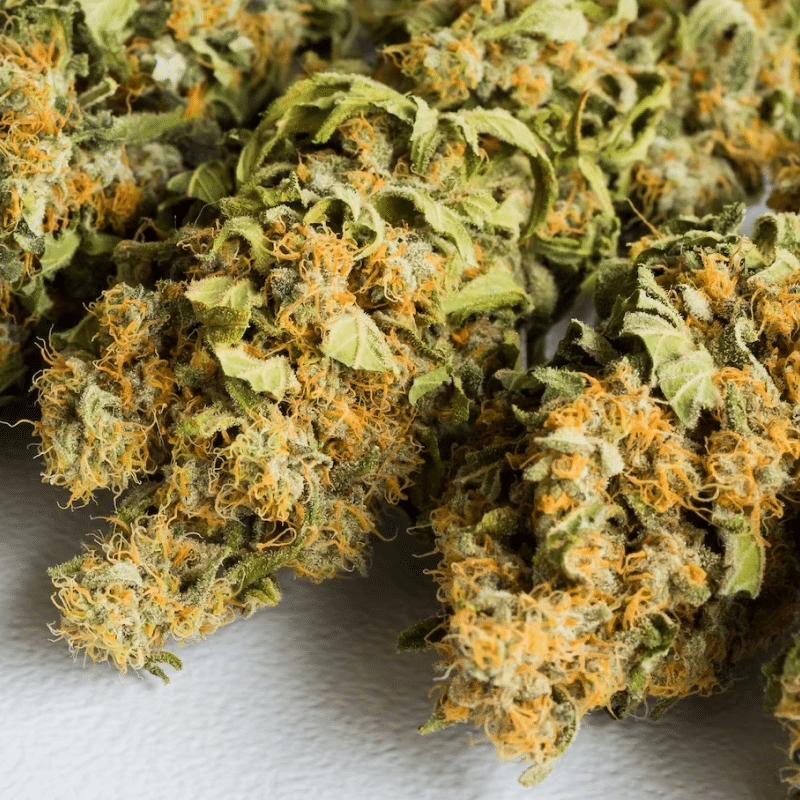What Is the Best Legal Structure for a Cannabis Business?
Setting up the legal structure of a cannabis business is a crucial step for entrepreneurs entering the industry. This decision can significantly affect long-term success, tax obligations, and overall business operations. Understanding the various corporate structures available, including C Corporations, LLCs, S Corporations, partnerships, and sole proprietorships, is essential. Each structure has unique benefits and challenges that can impact liability, taxation, and operational flexibility. Consulting with legal and financial experts is highly recommended to navigate the complexities of forming a cannabis business.

When a wide-eyed entrepreneur decides to enter the cannabis industry, setting up the legal structure of the business isn’t usually top of mind. However, the way you set up your cannabis business can have a lasting impact on your long-term success and your tax liability, so it’s a piece of your business plan that should be taken seriously.
Understanding the Legal Structure for a Cannabis Business
When setting up a cannabis business, you have several options for the corporate structure of the entity. Each structure has its own benefits and potential shortcomings, so which one works best for you is dependent on several factors.
Note: this is not intended to be taken as legal advice. Always consult a lawyer and accountant prior to making changes to your cannabis business.
C Corporation
Most businesses you know are likely a C-Corp, as this is a common corporate structure. In this structure, multiple owners share stock in a C Corp, which represents equity in the company and voting rights. A C Corporation provides less liability to shareholders because the legal and tax structure is desperate from the owner’s personal assets.
C Corps pay federal income tax and business profits are shared to the stakeholders. These entities get “double taxation” because tax is applied to the income of the business and the shareholder’s distributions.
A C corporation isn’t the right fit for every business since by-laws and a board of directors are required and the double taxation structure can be challenging.
LLC
LLC stands for Limited Liability Company and is named such because the owners (or members of the LLC) have limited liability from business disputes. LLCs can be run by individuals or by a group of people but must have an operating agreement if there’s more than one person. The way an LLC is taxed changes depending on how many members it has.
LLC’s are considered a hybrid business entity because the designation provides limited liability to the owners, but they don’t have to go through all of the corporate formalities as C Corps do.
An LLC is often considered the most flexible type of entity because the taxes work on a “pass-through” basis, meaning the income of the individual is taxed, not the business income, and because they can elect to be treated as a C-Corp. LLCs have a more flexible operating structure which makes them more attractive to smaller businesses.
S Corporation
A S Corp is a C Corp that has completed another IRS form. They can also have multiple owners, who each have shares of the stock. However, this stock cannot be publicly traded and there is a max of 100 shareholders.
Like an LLC, an S corporation has “pass-through” taxation so the income of the business flows to the owners, who each pay individual income tax. However, the taxation on an S Corp is more similar to a partnership or sole proprietorship.
Partnership
A partnership is made up of two or more people and can be structured to protect the liability of the owners in limited partnerships including LP, LLP, or LLLP. Partnerships have “pass-through” taxes so only the income of the owners is taxed.
Sole Proprietor
As the name implies, a sole proprietorship are held by a single person. These are the easiest types of entities to set up, but they carry the most risk and the least liability protection. Business profits are treated are personal income and you pay taxes additionally as a self-employed person, which increases the tax liability.
How to Choose the Best Legal Structure for Your Cannabis Business
There are many factors to consider in determining the best corporate structure for your cannabis business (besides the tax implications) and you should consult with experts to make the decision. Here are a few factors to consider before deciding on a legal structure.
Assess the short-term and long-term objectives of your cannabis business
What do you hope to achieve in 2 years, 5 years, and 10 years? What entity structure would best support this? Not all businesses grow at the same rate — or want to. Plant-touching businesses have different risk exposures and liability concerns than ancillary ones.
Know the regulatory environment
Each cannabis market is different, and the result is 20+ different markets spread across the US. Some markets have more regulations, some have more taxes, and some have neither. Assess the state-specific cannabis regulations of your market and your state to understand your compliance responsibility. Some states are more friendly to cannabis companies than others. You also have to understand the federal regulations your business will have to comply with, outside of 280E.
Consider the tax implications
Cannabis taxes vary wildly from state to state. While 280E from the IRS is one of the biggest detriments to businesses, it’s far from the only federal and state tax law you need to know. Each business structure offers its own tax benefits and liabilities.
Understand your personal liability
Some business structures separate the business liability from the personal while others don’t. Know your risk exposures with each entity structure along with the potential asset protection that it provides. Your personal risk tolerance is also important here — what exposures can you stand, and what will make you lose sleep at night?
Understand operational flexibility
Operational management can be a challenge for cannabis businesses of all sizes. The complexity of day-to-day operations, trying to stay flexible and resilient to regulatory changes — you have to know exactly how involved in the business you want to be. Are you the sole operational manager, or do you want to remove yourself from the operational process entirely?
This is an incomplete list of factors to consider when deciding on your cannabis business structure — and it highlights the importance of seeking professional guidance when doing so. There’s a lot of moving parts and pieces in the cannabis industry, and you don’t have to do it all alone.
Working with lawyers, finance professionals, and insurance agents with experience in the cannabis industry can make the process easier and less intimidating.
How Taxes Impact a Cannabis Business Structure
Since cannabis is still considered a Schedule I substance under federal law, all cannabis businesses are subject to 280E, an IRS policy that prohibits cannabis businesses (any businesses that work with “illegal drugs”) from certain tax breaks, including deducting business expenses against gross revenue.
This is, of course, incredibly unfair and burdensome to small cannabis business owners across the country as it creates an artificially higher taxable income. Cannabis business can, however, deduct the cost of goods sold (COGS)
Since cannabis businesses face challenges from the start, choosing the right business structure can have lasting implications on your taxes and therefore your profitability and longevity. There is no getting around 280E, but the state you operate in and your business structure can have a big impact come tax time.
Many states levy taxes on recreational cannabis products and businesses such as excise taxes, cultivation taxes, potency tax, and sales tax. Some states also give municipalities the option to add an additional tax on top of the state sales tax.
- Excise taxes: an excise tax is a state-imposed tax on certain products. Excise taxes can vary from state to state, and are applied to products like cannabis as well as tobacco, cigars, cigarettes, and gasoline.
- Cultivation taxes: These taxes are typically levied against cannabis growers based on the weight (wet or dry) of the cannabis harvest.
- Potency tax: Some states tax cannabis products based on the potency of the THC in the product. These taxes are controversial and reflect issues with the cannabis testing process, but can be a popular option for municipalities.
- Sales tax: Sales tax is issued at the state level and varies based on location. Some states impose higher sales tax rates than others, and they can range from 3% – 8%.
Protecting your cannabis company can seem confusing; however, we’re a full-service insurance brokerage working with carriers worldwide to offer you the best coverage possible. We’re here to help! Please reach out to us today by emailing info@alpharoot.com or calling 646-854-1093 for a customized letter of commitment or learning more about your cannabis insurance options.



